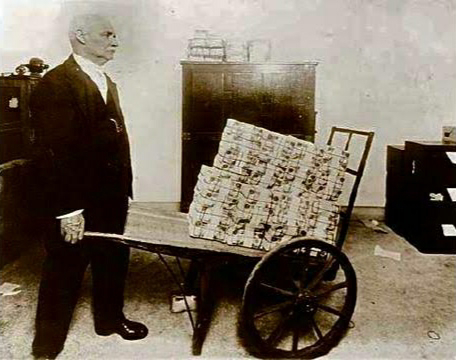"Breaking Bad" - A Groundbreaking Web Series That Redefined Television Storytelling
Introduction
"Breaking Bad" stands as a testament to the evolution of television storytelling, captivating audiences with its compelling characters, intricate plotlines, and moral dilemmas. Created by Vince Gilligan, this critically acclaimed web series first aired on AMC from 2008 to 2013. The show's unique blend of drama, suspense, and dark humor paved the way for a new era of serialized storytelling, leaving an indelible mark on pop culture.
Watch Breaking Bad now on Netflix
Plot Overview
Set in Albuquerque, New Mexico, "Breaking Bad" follows the transformation of Walter White, a high school chemistry teacher turned methamphetamine manufacturer, and his former student and business partner, Jesse Pinkman. The story delves into the intricacies of their illegal drug operation while exploring themes of morality, family, power, and consequences.
Character Depth and Development
The series excels in character development, with Walter White's descent from a meek and desperate teacher to a ruthless drug kingpin serving as the linchpin of the narrative. His motivations, initially driven by a desire to provide for his family after a cancer diagnosis, gradually evolve into an obsession with control and power. Jesse Pinkman's journey is equally poignant, depicting his struggles with addiction, trauma, and the search for purpose.
Supporting characters like Hank Schrader, Walter's brother-in-law and a DEA agent, and Saul Goodman, a morally ambiguous lawyer, contribute depth and complexity to the series. Their interactions with the main characters create additional layers of tension and intrigue.
Moral Ambiguity and Ethical Dilemmas
"Breaking Bad" challenges viewers with complex moral dilemmas, blurring the lines between right and wrong. Walter's actions often force the audience to question their own ethical boundaries. This moral ambiguity is a central theme of the series, as characters grapple with the consequences of their choices and the impact on their loved ones.
Narrative Pacing and Cinematic Quality
The series' narrative pacing is deliberate, allowing for the gradual evolution of characters and storylines. Each season builds upon the last, creating a sense of anticipation and tension. The cinematography and visual storytelling are cinematic in quality, utilizing symbolism, color schemes, and foreshadowing to enhance the viewer's experience.
Critical Acclaim and Legacy
"Breaking Bad" received widespread critical acclaim for its writing, acting, and thematic depth. It garnered numerous awards, including 16 Primetime Emmy Awards. Bryan Cranston's portrayal of Walter White and Aaron Paul's performance as Jesse Pinkman were particularly lauded for their complexity and authenticity.
The show's legacy extends beyond its initial run. The success of "Breaking Bad" paved the way for a prequel spin-off, "Better Call Saul," exploring the backstory of the charismatic lawyer, Saul Goodman. Additionally, its influence can be seen in subsequent series that prioritize long-form storytelling, character development, and exploration of moral gray areas.
Conclusion
"Breaking Bad" transcends its status as a web series, solidifying its place as a cultural phenomenon that redefined television storytelling. Its exploration of morality, character transformation, and narrative intricacy captivated audiences and left an enduring impact on the entertainment landscape. As viewers continue to be enthralled by the moral complexities of Walter White's journey, "Breaking Bad" remains a testament to the power of storytelling to provoke thought and emotion.




Comments
Post a Comment